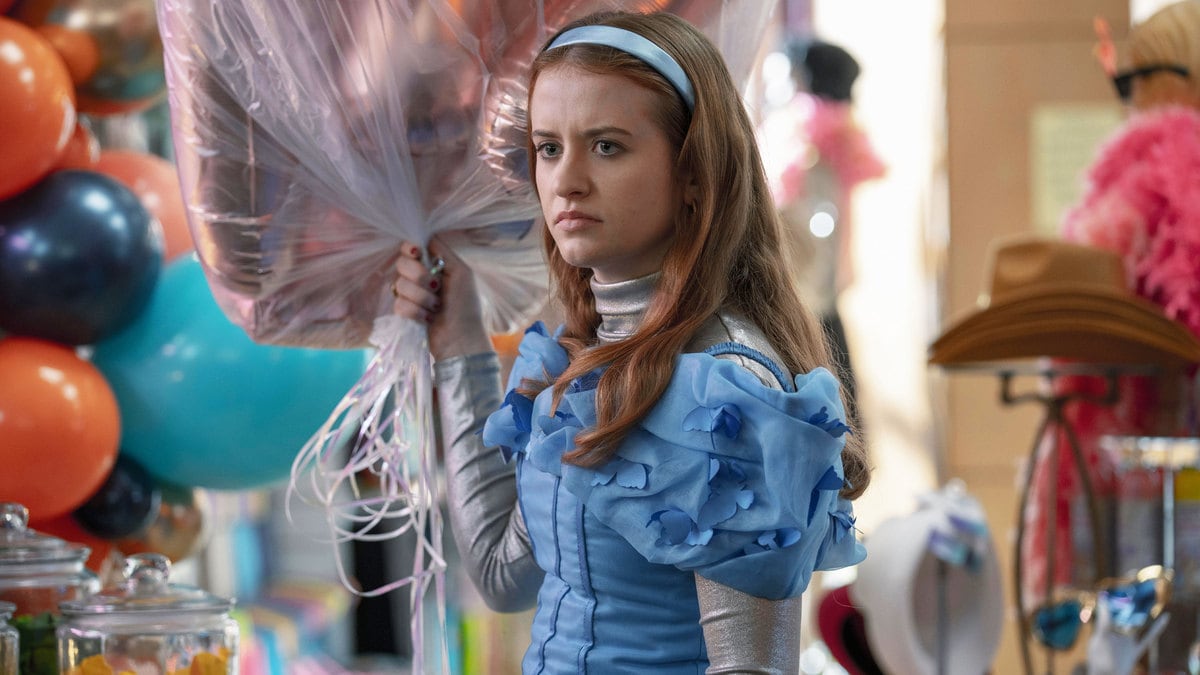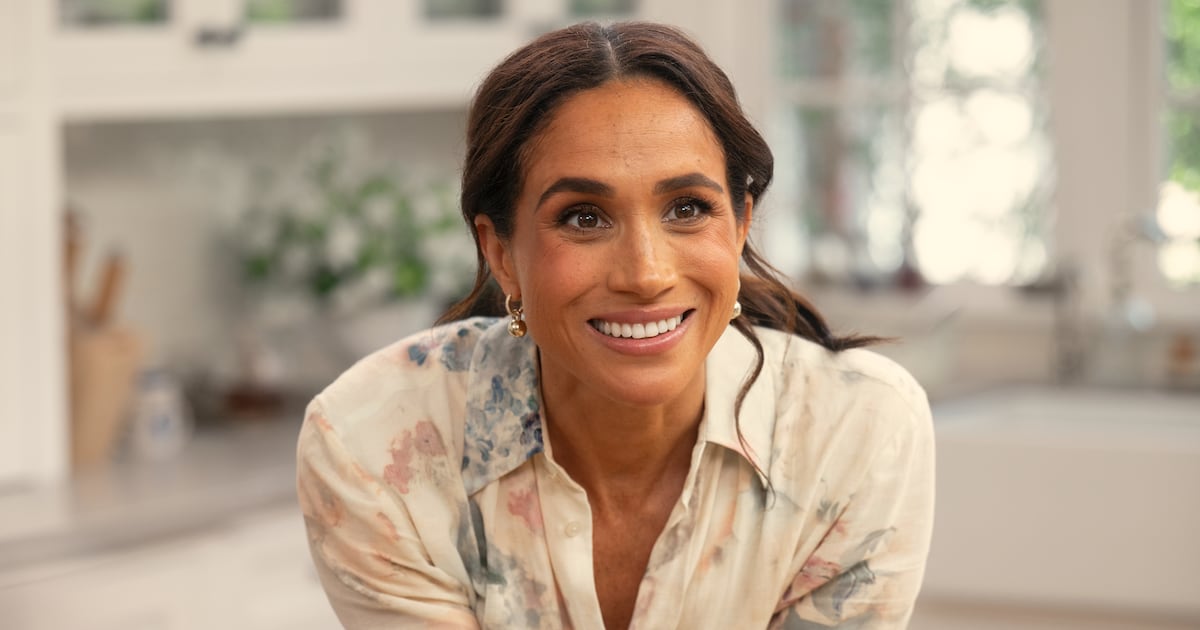In the world of the series Extraordinary, out today on Hulu, having superpowers is the status quo. Women who never age, teenagers with Thor-like strength, and men who can make objects appear from their ass like a 3-D printer all live harmoniously in an English metropolis and presumably elsewhere across the globe.
They’re not all heroes or villains. Most behave like normal civilians, using their powers to impress partners, get jobs, and/or do bizarre favors. Meanwhile, adults who lack superabilities—like the show’s main protagonist—live lives of insecurity. They face frequent judgment, if not exactly marginalization. Compare it to being a grown-up in society who can’t drive, find employment, or is chronically single. The pilot even draws a parallel between powerless people and those who struggle with infertility, as we learn about superpower “discovery clinics.”

Being powerless is one of several dilemmas facing 24-year-old Irish native Jen Regan (Máiréad Tyers) in the series. We meet her during a corporate job interview, where a professional woman forces her to answer all of her questions truthfully via mind control. “I’m afraid I might be a bit racist,” Jen replies, before covering her mouth. After vomiting a slew of embarrassing answers—including that she has yet to receive a power—she’s hit with a big whammy. “What makes you special?” the woman asks, already unimpressed. Jen is left speechless.
As you can probably tell, Extraordinary is less of a typical comic-book story, centered around constructs of good and evil, and more of a messy coming-of-age tale. It's a delightful journey of self-discovery that reveals some funny and heartbreaking truths about friendship, grief, loneliness and self-victimization. What initially seems like a slightly heavy prestige comedy in the first two episodes eventually adopts a lighter, sillier tone and structure that resembles a network comedy. Even when the show feels like it’s losing its way, there’s a potent message at the end of each episode to put everything back into perspective.
Jen is the familiar millennial (now Gen-Z) protagonist with few ambitions outside of maintaining her lover’s attention and one-upping her obnoxious half-sister (Safia Oakley-Green). Immediately, she brings to mind Girls’ Hannah Horvath, displaying an unnecessary cynicism about the world seemingly born out of self-loathing and, of course, narcissism. It’s unclear why Jen wants a power other than to fit in—a fair-enough reason—or which ability she even desires. But as she learns from her family and peers, attaining a power is just a small, introductory step in figuring out one’s path. As much as having something like invisibility or clairvoyance can be an advantage, it can also be a burden.
We see this most evidently in Jen’s childhood best friend Carrie (played marvelously by Sofia Oxenham), whom she shares a flat with, along with Carrie’s boyfriend, Kash (Bilal Hasna). On the surface, Carrie’s life seems much more put-together than Jen’s as a lawyer in a stable, long-term relationship. However, her ability to possess the spirits and voices of dead people proves to be quite draining. At work, Carrie barely gets to use her legal training, summoning up dead people to settle estate disputes and clarify wills. While it brings her some lucrative opportunities later down the road, her power mostly obscures people from getting to know or even caring who she is as a person.
Then there’s Jen’s rescue cat “Jizzlord” (Luke Rollason), who turns out to be a human shapeshifter. After getting stuck in a feline’s body for a little too long, he has to relearn his human qualities and piece together his life before becoming a spoiled house pet. Jen, just as much of a stranger in her own body, agrees to help. The two instantly form a rich bond.

Watching Jizzlord search for his humanity and a sense of normalcy while Jen desires to be exceptional underscores how relative their experiences are. Primarily, Jizzlord’s journey reveals the flaws in Jen’s self-appointed dormancy as a powerless person. There’s an assumption that she won’t have any self-work to do after she’s gained a superpower or that she can only start living her life once she has something to show off to her peers. Mainly, she doesn’t realize that the person she has to go to bed with at night and wake up with in the morning is more important than the version of herself she offers to the world.
These moments of profundity sneak up on you throughout Extraordinary. The show offers a mix of personal life lessons and broader feminist commentary, packaged in hilarious storylines and bits. One of the best subplots occurs when Kash decides to form a team of male vigilantes to “protect women,” while abandoning his own girlfriend’s needs. We see Kash and his newly hired team members get into surface-level debates over who respects women more. Unbeknownst to them, they’re feeding into a male hero complex that many women find obnoxious and unhelpful in dangerous situations. Likewise, it’s satisfying when their feminist task force completely falls apart.
The rest of Extraordinary is just as sharply entertaining. It may not be as splashy or attention-grabbing as Hulu’s other offerings, but it certainly has a level of clarity and confidence regarding its thesis that’s missing from more experimental streaming programs as of late.
Even if you’re exhausted by superhero content—not that this show has many heroes to speak of—you’ll find the buddy sitcom within Extraordinary extremely charming and its underlying message, dare I say, pretty powerful.






